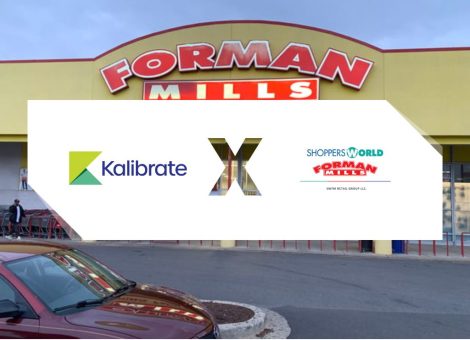The power of traffic data: A tale of two retailers
In the absence of traffic data
Perhaps the best way to explore the consequences of a data deficit is to detail an example: A retailer looking to purchase a new site or land for a new site should have developed or purchased a cache of data to assist in their search. They might have insight into the average household income within a two-mile radius of the location, for instance, and an understanding of what demographics are represented in the local population. But without traffic data, this retailer is less capable of predicting revenue at a prospective location, and therefore less capable of making a truly informed decision.
What if you were considering two, separate locations, and were not aware that one location saw traffic continuously, while the other only experienced high traffic for the lunch hour of the day? It would be challenging, to say the least, to form the right decisions without that key traffic information.
Further, because traffic data can function as an additional instrument in your toolbox, allowing you to beat out the competition who is not using this information — based on a single factor.
Are you using traffic data poorly?
Let’s assume you are interested in collecting information about traffic in order to effectively bolster decisions via data. There are really three types of retailers: those who do not collect or use traffic data (whom we have already discussed), those who collect it, but poorly, and those that collect it with an eye on strategy and an acknowledgment of the spectrum of data strength. The tale we are weaving is about the latter two: those who are already collecting data, but doing so in different ways, effecting different results.
Not all data is created equal. If you want to collect traffic data for one intersection, you can inquire with the Department of Transportation (DoT) in your state, which will provide that data for free. But it will be in whichever format that state’s DoT happens to have on deck, and updated when that state happens to update it. If you are trying to go deeper — gathering data from multiple states, cities, zip codes, etc., you can easily go to all those individual transportation departments and collect the data yourself, but it will come in different file formats and with different information. For instance, Michigan might send you a recently updated spreadsheet with latitude and longitude information for each count, while Illinois might send you a PDF from 2013 without any of the latitude and longitude information.
As you can imagine, collecting such disparate data and data formats is less than ideal. A retailer that takes this approach can be almost certain that there will be significant lifting internally in order to find the right format and compare the data, allowing you to make decisions.
Then, there is the other retailer type — the type that gathers data from one single source of truth. For a retailer with access to a dedicated site-selection team, raw information that’s clean, easy to use, versatile and provided in a single format is the pinnacle of traffic data’s inclusion in the decision-making process. This third retailer type is going to achieve a higher ROI on sites, due to making more informed decisions through incorporating traffic data.
With all of this in mind, it’s time to get to work on incorporating data into your site selection strategy. Contact Kalibrate today for a consultation.
Read more articles about:
UncategorizedSubscribe and get the latest updates
You may unsubscribe from our mailing list at any time. To understand how and why we process your data, please see our Privacy & Cookies Policy
Related resources
Fuel pricing
November 2025. Kalibrate's Canadian Petroleum Price Snapshot
Kalibrate conducts a daily survey of retail gasoline, diesel, propane, and furnace fuel prices in 77 Canadian cities....

Location intelligence
Forman Mills accelerates growth with the Kalibrate Location Intelligence platform
The value apparel and home goods retailer selects Kalibrate to to support its national expansion strategy.

